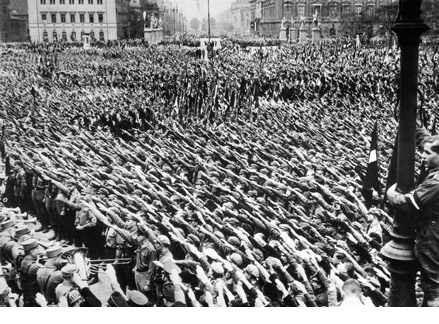


Seeds of Tyranny
by Philip Lee Williams
Intro
|
Alike But Different
|
Embraced By the People
|
Beyond Democracy
|
Cautious Optimism

![]()
A Distinguished Career in Brief
Beyond Democracy
Historians have always examined the roles of supremely charismatic leaders in creating totalitarian governments. And while Italy’s Benito Mussolini, Germany’s Hitler and the Soviet Union’s Lenin (born Vladimir Ilyich Ulyanov) were indeed such leaders, even these men didn’t drive the movements in the beginning. Each regime was born from deep social underpinnings.
“At work was not merely some common desire [among these individuals] for total domination or some common technique of rule,” writes Roberts. “Nor do we find the key in violence, exclusion, terror or some ‘assault on man.’”
What Roberts discovered in his examination of totalitarianism in those regimes was “a very different relationship between the concentration of power and history.” The leaders’ aim was not to deny or transcend history, he says, but to face up to it, be equal to it, and by so doing to make it in a new way. This process required concentrating, expanding and even creating power as never before.

The arms of 300,000 men and women are raised in the Fascist salute to Adolf Hitler during a May Day demonstration.
And that could only have happened in the 20th century, says Roberts. “Nobody would have even thought of totalitarianism in the 18th century. Of course they had despotism and absolute monarchies, but you can’t have totalitarianism until people have had a taste of the democratic experience. It’s only at a certain moment in time when people have had enough experience with democracy that totalitarianism becomes possible—as an attempt to go beyond democracy.”
Thus even as they tried to control society, abolishing the distinction between public and private, the totalitarian elites sought to mobilize the population to create a new kind of humanity and a new capacity for collective action. Relentless propa-ganda encouraged compliance, as did surveillance and an activist political police.
Intro
|
Alike But Different
|
Embraced By the People
|
Beyond Democracy
|
Cautious Optimism
For comments or for information please e-mail: rcomm@uga.edu
To contact the webmaster please email: ovprweb@uga.edu
![]()